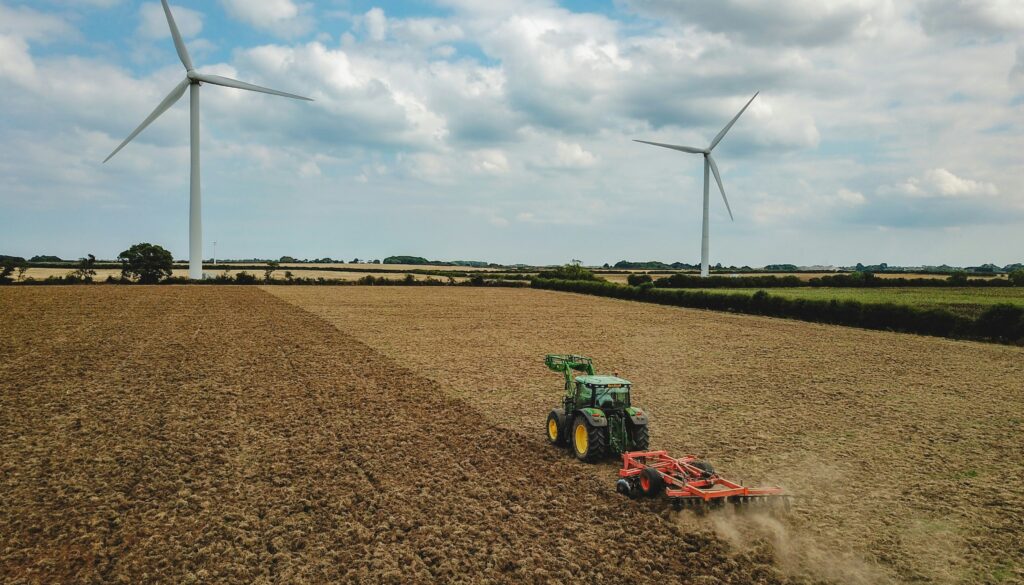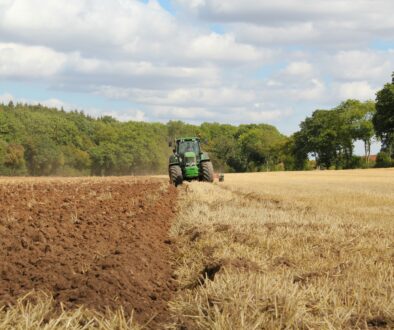Agricultural Tenancies : Repair, Maintenance and Insurance Obligations
Agricultural Tenancies : Repair, Maintenance and Insurance Obligations
A. Agricultural Holdings Act 1986
For tenancies governed by the Agricultural Holdings Act 1986 (the 1986 Act) , the obligations of the Landlord and the Tenant in relation to the repair, maintenance and insurance of ‘fixed equipment’ (which for these purposes includes buildings) will be dealt with either:
1.In accordance with the terms of the tenancy agreement, or
2.(To the extent that the tenancy agreement is silent) in accordance with the terms of the ‘Model Clauses’ contained in:
2.1 with effect from 1 October 2015 where the property is in England, the Agriculture (Model Clauses for Fixed Equipment) (England) Regulations 2015 (the 2015 Regulations)
2.2 with effect from 1 November 2019 where the property is in Wales, the Agriculture (Model Clauses for Fixed Equipment) (Wales) Regulations 2019 (the 2019 Regulations).
In each case these replace (with effect from their respective commencement dates) the Agriculture (Maintenance, Repair and Insurance of Fixed Equipment) Regulations 1973 (the 1973 Regulations).
In practice, written tenancy agreements will often expressly incorporate the Model Clauses in the form current at the date of the agreement.
The 2015 Regulations and the 2019 Regulations (which are in nearly identical terms) allocate responsibility for maintaining, repairing and insuring fixed equipment between the Landlord and the Tenant. A number of items, which were previously the responsibility of the Tenant under the 1973 Regulations, are now the responsibility of the Landlord as a result of the 2015 Regulations and the 2019 Regulations.
The Model Clauses : The Landlord’s rights and liabilities:
In short/broad terms, the Landlord is liable to repair (or where necessary replace) all the main external and internal structural elements of any building which was let as part of the holding (including any farmhouse, cottage or farm building) and to insure those buildings to their full value against fire.
The Landlord must also repair (or replace) the water, drainage and sewerage apparatus on the holding. In addition, the landlord must replace those items listed in paragraph 9(1) of Schedule 1 to the 2015 Regulations and the 2019 Regulations which would ordinarily fall within the Tenant’s repairing obligation but which (usually by virtue of their age, e.g. electrical wiring) are beyond repair, unless paragraph 9(3) applies (which, in broad terms, excuses the Landlord where the state of repair or condition is the fault of the Tenant).
The Landlord is not obliged to repair or replace any item (whether through using the Landlord’s own money or by using the proceeds of an insurance claim) where the damage in question was caused by the wilful act or default of the Tenant.
The Landlord can recover from the Tenant one half of the cost of some repairs or replacements (e.g. internal painting or decoration, doors, and windows), except where the damage is caused by fire.
If the Landlord does not carry out repairs or replacements for which they are responsible, the Tenant can serve on the Landlord a written notice specifying the relevant works, and calling on the Landlord to comply with their obligation.
The Landlord can contest the necessity of those works by serving of a counter-notice within one month of the Tenant’s notice, with time being of the essence.
The Landlord has three months from either the date of the Tenant’s notice, or – if the Landlord has served a counter-notice – from the date of an arbitrator’s decision, within which to carry out any works for which the Landlord is liable (with a shorter period of one week for works in relation to underground water pipes, or immediately where fire or carbon monoxide detectors or alarms are not working.).
If the Landlord fails to carry out the required works within the relevant period, the Tenant can carry out those works and seek to recover the reasonable cost of them from the Landlord. The Landlord can then call for the question of what a “reasonable” cost is to be determined by arbitration or third-party determination.
The amount which the Tenant may recover, and the timing of any claim for recovery, is governed by paragraph 13 of Schedule 1 in each of the 2015 Regulations and the 2019 Regulations.
If the Tenant does not wish, or cannot afford, to carry out the necessary works, the Tenant can institute proceedings against the Landlord for specific performance and damages for the Landlord’s failure to comply with their obligations under the Model Clauses.
There is no sanction if the Landlord fails to insure as required by the Model Clauses.
The Model Clauses — the Tenant’s rights and liabilities:
Paragraph 9 of Schedule 1 in each of the 2015 Regulations and the 2019 Regulations contains a list of items for the repair, replacement or maintenance which the Tenant is liable. This Tenant’s obligation is not limited by reference to by the state of repair or condition of the relevant item at the start of the tenancy.
Instead, the Tenant has to maintain the relevant item in such state of repair or condition as is reasonable having regard to the age and character of the item in question, it’s state of repair or condition at the beginning of the tenancy, the length of the tenancy, and the length of time during which the Tenant could have had complied with their repair, replacement or maintenance obligations.
There are no express sanctions for the Tenant’s failure to comply with any obligations under the 2015 Regulations or the 2019 Regulations. However, and under paragraph 5 of Schedule 1, in each set of Regulations, the Landlord can serve written notice on the Tenant requiring them to carry out works for which they are liable if the Tenant fails to carry them out.
If the Tenant disputes their liability to carry out those works, the Tenant can serve a counter-notice within one month of receipt of the Landlord’s notice, in which connection time is of the essence.
If the Tenant does not begin the works within two months, or fails to complete them within three months, either from the date of service of the Landlord’s notice, or from the date of an arbitrator’s decision if the Tenant has served a counter-notice, the Landlord can enter on to the holding and carry out the works. He can then seek to recover the reasonable cost of doing so from the Tenant.
Although neither the 2015 Regulations nor the 2019 Regulations spells out the consequences of a Tenant’s failure to serve a counter-notice within this one month period, there is a general assumption that those consequences would be the same as where the Landlord fails to serve a counter-notice within the required period. There is also a general assumption that the Landlord has the same right to pursue other remedies as is available to the Tenant.
Although the Landlord does have the rights conferred by the Model Clauses, they are rarely invoked in practice. it is more likely that the Landlord will use any qualifying breach as the basis either for the service of a notice to remedy, or for making an application for a certificate of bad husbandry, the sanction for which becoming available being far stronger.
Redundant fixed equipment:
Paragraph 15 of Schedule 1 in each of the 2015 Regulations and the 2019 Regulations provides a mechanism under which either the Landlord or the Tenant can refer to arbitration or third-party determination any question as to whether any item of fixed equipment which has been damaged or destroyed by fire was redundant to the farming of the holding.
If the arbitrator or third party decides that the item was redundant, neither party is liable under the Model Clauses in respect of any past or future obligation in relation to that item.
Tenant’s statutory right to secure landlord’s consent or variation of tenancy terms:
The Agricultural Holdings (Requests for Landlord’s Consent or Variation of Terms and the Suitability Test) (England) Regulations 2021 give Tenants of agricultural holdings in England a statutory right to secure the Landlord’s consent, or a variation of the terms of their tenancy, so that they are able to apply for ‘financial assistance’ in relation to agri-environment schemes and diversification projects introduced by the Agriculture Act 2020.
If the Tenant needs the Landlord’s consent, or a variation of the tenancy, to enter into a scheme or to comply with a statutory duty, the Tenant can serve a notice on the Landlord requesting that consent or variation. The request must specify the consent or variation that is being requested and must describe the proposed activity for which the consent or variation is required.
If the Landlord refuses the request, or agrees to it subject to conditions, the Tenant can refer the matter to an arbitrator appointed under the 1986 Act or, if the parties agree, to an expert. But, for the request to be capable of referral to arbitration:
a) the Tenant must be up to date with payments of the rent
b) the request must be in writing
c) there must be no outstanding valid notice to quit.
Any consent or variation to which the Landlord agrees, or which is imposed by the arbitrator/expert, has the potential to affect the open market rent for the holding. Although it is open to the parties to agree a revised rent, the arbitrator/expert cannot impose a variation to the rent. Instead, the parties must wait until the next review (by which time the impact of the consent or variation should be clearer).
B.Agricultural Tenancies Act 1995:
The Agricultural Tenancies Act 1995 imposes no requirements about the repair, maintenance or insurance of the holding, so the parties are free to agree whatever terms they choose.
In some cases, the repair and maintenance obligations under a Farm Business Tenancy may be defined by reference to the (1986 Act) Model Clauses. If so, the interpretation provisions in the Tenancy Agreement may allow any reference to the 1973 Regulations to be interpreted as a reference to include any regulations replacing them (and so incorporating — depending on where the farm is located — the 2015 Regulations into the tenancy with effect from 1 October 2015 or the 2019 Regulations with effect from 1 November 2019). If there is no such provision, the 1973 Regulations will continue to apply.
In the absence of any specific provision, neither party will be under any obligation as to the repair, maintenance or insurance of the holding , except for some very limited implied obligations.
First, any repairs carried out by the Landlord must not interfere with the express or implied covenant for quiet enjoyment, so the Landlord must take all reasonable steps to ensure that any works are consistent with that covenant.
Secondly, the Tenant is under implied obligations to use the property in a tenant-like manner (i.e. so as not to commit waste) and to manage and cultivate the land in accordance with the rules of good husbandry. Although this does not amount to an obligation to carry out repair, it does amount to an obligation not to cause disrepair (fair wear and tear excepted) either through acts or omissions.
(This article is not intended to be comprehensive or to provide specific legal advice. It should not be relied upon in the absence of specific advice given in relation to particular circumstances.)
For further information, please contact: Natalie Linehan, Andrew Williamson or David Thorp




